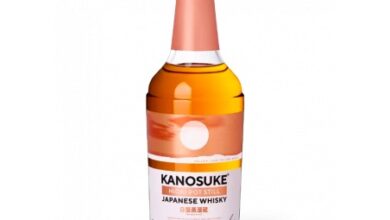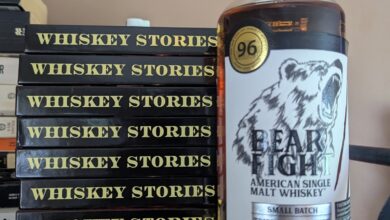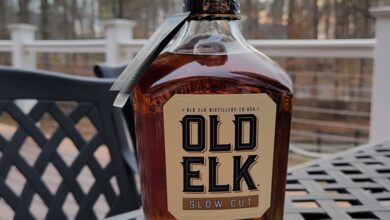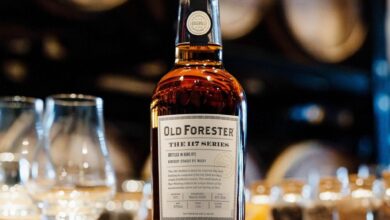Uncle Nearest Uncut & Unfiltered Rye Whiskey Review
By Richard Thomas
Rating: B-

(Credit: Uncle Nearest)
Uncle Nearest almost instantly became a well-known whiskey brand thanks to two points. First, it’s named for and honors the legacy of Nathan “Nearest” Green, the slave who is known to have worked as distiller and taught Jack Daniels the whiskey-making trade in the 1850s. Second and related, it’s a company founded by noted African-American entrepreneur Fawn Weaver. But once you look past those points, Uncle Nearest the brand is in the familiar situation many well-run brands making the transition from sourced to in-house whiskey.
Another noteworthy point for Uncle Nearest is their Master Blender, Victoria Eady Butler, the first African-American woman to work in that role. Butler had some interesting spirit to work with. It’s a 100% rye from Canada (although the specific source is undisclosed, many sourced 100% ryes come from Alberta Distillers), but somehow it was exported to a third party in New York State. There it matured for four years before making its way to Tennessee, whereupon Butler saw it transferred to some old Uncle Nearest barrels for a spell of finishing. The result was bottled uncut and unfiltered. There is no Lincoln County Process here, since that must take place before barreling, not after. The whiskey came out at 119.7 proof.
In an unusual reversal, this expression came before Uncle Nearest introduced their straight rye, bottled at 100 proof.
The Whiskey
Uncle Nearest pours as a golden, verging on copper whiskey. With the proof coming just a hair from 120 proof, I applied my rule of just assuming it was too strong as is, and put in a splash of water.
The aroma in my Glencairn was herbaceous. There was a side to it that was akin to a hay barn: grain bundles, bales of alfalfa and earthy dustiness. But there is another side to that coin, with hints of dill, mint and orange zest. Sipping on Nearest delivers that musty, thickly sweet style of pumpernickel that some ryes, especially malted ryes, possess, along with spicy cinnamon, white pepper and dry oak. The finish rolled off that last note, running mildly spicy and drily woody.
The Price
Expect to pay $150 a bottle for this cask strength rye.




